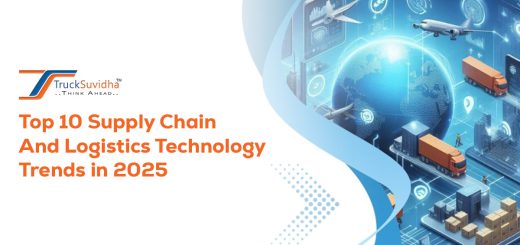How data-driven technology stack enhances efficiency in supply chain framework in the logistic industry
In the dynamic realm of express logistics and supply chain industry, where speed and efficiency are paramount, the integration of cutting-edge data-driven technologies has emerged as a transformative force. Innovations such as artificial intelligence (AI), machine learning (ML), the Internet of Things (IoT), and others are promising increased efficiency and adaptability, ushering in a new era of responsiveness. We have seen in the supply chain business the process of transforming supply chain management, cutting-edge innovations such as artificial intelligence (AI), machine learning (ML), the internet of things (IoT), and others are bringing about the promise of increased efficiency and resilience. The implementation of these technologies, on the other hand, needs to go beyond simple adoption; it calls for an approach that is smart and purposeful, and it also demands a well-charted investment and deployment roadmap. However, the integration of AI and ML has made the entire express logistics operations futuristic, adaptive and responsive to the evolving demand matrix.
The efficiency of automation is the driving force behind this evolution in the field of logistics. The incorporation of algorithms that are powered by artificial intelligence is causing ordinary processes such as route planning, inventory management, and order processing to undergo a revolution. It is possible for logistics organisations to function with an unprecedented level of efficiency and precision if they reduce the number of manual interventions they use. This helps to reduce the number of errors that occur and speeds up the operating processes.
Harnessing Predictive Insights with Machine Learning
As the express logistics industry operates under tight schedules and fluctuating demand, machine learning becomes a critical tool. Machine learning algorithms have the capability to forecast demand, optimize inventory levels, and predict potential disruptions in the supply chain. In the realm of express deliveries, where demand can spike during peak periods or unforeseen circumstances, having the ability to anticipate and respond is invaluable.
Machine learning algorithms enable express logistics companies to make well-informed decisions, preventing stock outs during high-demand periods, minimizing excess inventory costs, and ultimately optimizing the entire supply chain for swift and efficient deliveries.

Real-Time Visibility via the Internet of Things (IoT)
To companies that are looking to improve their efficiency, the Internet of Things (IoT) has emerged as a game-changer. Visibility into the movement and condition of commodities in real time is no longer a pipe dream but rather a realistic reality that is becoming increasingly available. In order to ensure that there is a continuous flow of data, Internet of Things devices, which can include anything from sensors to RFID tags, can be easily integrated into containers, trucks, and warehouses. Having this kind of real-time visibility gives logistics organisations the ability to check the quality of items, trace shipments, and respond proactively to any problems that may arise, which ultimately results in a supply chain that is more streamlined and dependable.
Empowering Decision-Making with Advanced Analytics
In the era of big data, logistics firms that are equipped with data-driven technology stacks have the ability to utilise advanced analytics in order to make decisions that are intelligent. By diving into data pertaining to operations, customer behaviour, and market trends, logistics companies are able to optimise routes, efficiently allocate resources, and respond with agility to the ever-changing dynamics of the market.
Strategic Roadmap: Navigating the Integration of Data-Driven Technologies
A data-driven technology stack is not a solution that can be applied universally; rather, it necessitates a strategic investment and deployment strategy in order to be implemented. An exhaustive analysis of the existing state of the supply chain must be undertaken by businesses in order to discover areas that are ready to be incorporated with technology advancements. The establishment of priorities is necessary, regardless of whether the emphasis is placed on the automation of repetitive processes, the development of visibility, or the advancement of predictive analytics.
It is of the utmost importance to pick and invest in the appropriate technology after these goals have been successfully recognised. It is of the utmost importance to select AI and ML algorithms, Internet of Things devices, and analytics tools that are in line with the goals. It is also recommended that the implementation be carried out in stages in order to reduce interruptions and make room for ongoing monitoring and improvement.
Visit us – https://shorturl.at/bdpzQ




Recent Comments